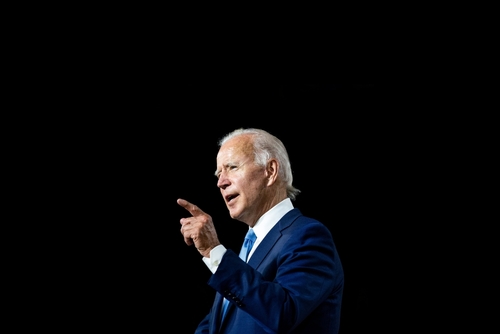
Since March, Washington’s nuclear negotiations with Iran have floundered. Since then, no talks have taken place in Vienna.
Both U.S. and Iranian authorities wasted the last two months delivering to each other media signals that can be summed up as “Get off your rear end and sign the agreement.”
Joe Biden cannot re-enter the Iran nuclear deal. It will send the world a signal that the USA embraces the Iranian regime.
— Sen. Marsha Blackburn (@MarshaBlackburn) May 6, 2022
If the Biden administration exhibited any political determination, the year-long negotiations would be over and done with.
The sides seem to be wasting as much time preparing to blame the other side.
Positive Note
Only Enrique Mora, the EU’s nuclear director, is bustling, having just returned from a multi-day journey to Tehran, where he met with Iran’s main nuclear negotiator.
While one source called the negotiations “difficult,” Mora’s boss, EU foreign policy head Josep Borrell, was more upbeat.
At a G-7 foreign ministers’ meeting, Borrell told the media the discussions had been stalled.
How US blacklisting of IRGC is stalling Iran nuclear deal revival https://t.co/QCoBW299tg
— Al Jazeera English (@AJEnglish) May 13, 2022
Maybe Borrell has insider intel. From the outside, it appears that diplomacy is stagnant.
Ironically, the issue impeding the nuclear talks isn’t Iran’s nuclear program. The Islamic Revolutionary Guard Corps has been a point of contention between the US and Iran.
A spokesman for Iran’s Revolutionary Guard said the US list of foreign terrorist groups was made to force the Iranian government to agree to a more comprehensive deal on US terms.
The Biden presidency publicly denied this notion, stating Iran is trying to milk the US for last-minute concessions.
The State Department said the guard problem is unrelated to the nuclear situation. Tehran must be prepared to make non-nuclear concessions in exchange for Guard concessions.
Last month, US Secretary of State Antony Blinken told the Senate the only way the embargo might be lifted was if Iran took actions to justify it. “It understands what it must do.”
Iran’s Nuclear Program
The Biden administration is in an odd situation.
On the one hand, it believes re-entering the 2015 Iran nuclear agreement is the best approach to “put Iran’s nuclear program back in a box.” While the arrangement was far from flawless, it was impossible to imagine better options.
The Biden administration might bolster former President Trump’s higher pressure campaign. Though there is no sign Iran is any more eager to comply with US requests than it was when the US sanctions reduced Iranian oil shipments by roughly 85%.
Since the policy was put into place, Iran’s stockpile of enriched uranium has grown from 202.8 kilograms to over 2,880 kilograms. That doesn’t include the 60% enrichment that Iranian scientists are making right now.
Of course, President Joe Biden decides.
What is more vital for US national security: containment of Iran’s nuclear program, international monitors returning to Iran’s facilities, or keeping the Guard on the FTO list and risking a breakdown in negotiations, leading to an even more unconstrained Iranian nuclear program?
It must be worth a few weeks of complaining at home to stop another Middle East crisis.
















